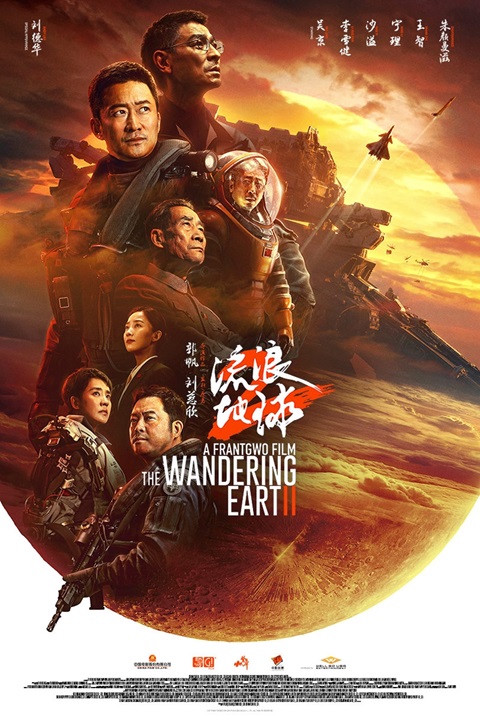
Before The Wandering Earth came out, I was very excited to see what it could be; I adore the short story collection (and I do not usually particularly like short story collections), although the movie is based on only one story in it, and based very, very loosely at that. But Liu Cixin is one of my favorite authors, and so I had to watch the film. And it was okay, but it was much a generic disaster movie than anything particularly close to what I was hoping for. A lot more Armageddon or Deep Impact or whatever than The Three Body Problem.
Its sequel (well, prequel), however, I arrived at very differently, and it treated me very differently. I was not even aware that it existed until 8 months after its release, even though it, too, was a colossal box office hit in China, and I doubt very many of my 2 readers will know that it exists until they read this very thing. But this is probably what the first movie should have been.
I think that what I admire most about the movie is its ambition. It does not want to be small. It zooms in and out, between character drama and epic science fiction, but I think it is much stronger doing the latter; it is uses the character drama to feed into it, of course, and I don't think they can leave it out, but the scale of events in the movie is cool, and hard to convey normally. It is surprisingly good at flowing through its own fictional future history rather than getting hung up in any particular time period or place.
There are a lot of movies about characters, but there are not that many good movies actually about the larger flow of events and the human race, so I like it when movies even try like this. This movie, too, uses a lot of character drama and emphasis on specific individuals, so I certainly don't give it a complete pass there. But even most movies about real major historical events tend to try to emphasize the individual character drama and stories and ignore the implications and philosophy and historical impact of the actual events (of course, there are exceptions). Perhaps the Great Man theory of history is simply fundamentally more interesting than the Historical Forces theory of history to a wide audience.
Another piece of its ambition is something I think I touched on in my Contact review, which is that it is willing to offer hope as an ideal, something modern western science fiction essentially ignores as a dumb, pointless idea. And I think it is vaguely aware of that problem with current science fiction and actively choosing another path, particularly in its climactic scene and ending, where it is not at all subtle. Subtext, of course, is for cowards.
One final note, I suppose, since this is getting long. I kind of appreciate that it leans into the fact that as a prequel, it knows that we know that they will "win"; it is more interested in how they get there, but unlike many prequels it mostly doesn't pretend otherwise, and it shows upcoming events on the screen, almost as though it is a historical record. In a way it feels more "real" by doing so, even though it very obviously is entirely fictional and completely impossible in reality. But the goal of the genre isn't to be realistic, it is to feel tethered to reality despite unrealism, and I think it mostly succeeds at that.
Score: 8/10
IMDb: The Wandering Earth 2
PS: RIP Ng Man-tat. Possibly the only instance so far in which I haven't been offended by a CGI rendition tribute, because it was not asked to do too much.
PPS: The Three Body Problem adaptations are coming and man I need them to be good instead of bad so badly. They probably won't be, but let me be greedy. Make them great.
